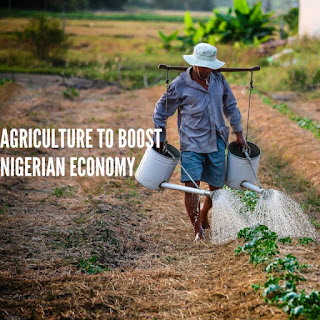Farouk Gumel - The minimum support price in agriculture - what is it important
Farouk Gumel - Most governments intervene in their agricultural markets although the extent of these interventions depend in large part on the wealth of the country. In the last century or so, the most common of these interventions is the Minimum Support Price (MSP) mechanism. In this paper, I hope to explain in simple terms, what the MSP is and how it works.
MSP is the price at which the government commits to purchase crops from the farmers. This acts as a ‘minimum floor price’ farmers will get for their produce thereby shielding them from adverse market conditions because of price drop. Furthermore, in the event of a bumper harvest where there is excess stock, farmers still have a guaranteed buyer as the government, through its agencies, will buy the entire stock offered by the farmers at the MSP.
The prices of agricultural commodities often vary due to various factors. If a crop has seen a good harvest season during a particular year, it may see a sharp fall in its prices. This will lead to farmers withdrawing from sowing the crop in the next year which will affect the supply. To counter this, MSP is fixed by the government which is supposed to encourage higher investments and production of crops. Furthermore, by buying the excess crops, governments build strategic reserves that can be used to augment any food shortages in future years.
The successful implementation of MSPs however depends on how wealthy the country is as the government requires huge budgetary allocations for procurement and strong value chains for management of the inventory acquired. In many poor countries, these programs fail due to lack of funding and poor technical capacity to manage the grains procured from the farmers. This leads to lack of confidence in governments and destruction of grains. This subjects countries to very volatile swings in their food security status – from surplus to famine within a few years.
Africa is one continent where countries have seen such volatile swings. Although the policies exist in many nations, the implementation has not been very impactful due to low funding and technical knowledge. Despite Africa’s huge arable land and high population of farmers, food shortages and high food prices still occur. Typically, many African nations create and grant state marketing boards a legal monopoly to buy agricultural products from farmers and to resell them to domestic consumers or export markets. There have been cases where such boards pay farmers only a third to half of the domestic consumer price or the export price. The result, according to the World Bank, is that after growing 0.2% per annum in the 1960s, per capita food production in sub-Saharan Africa fell to 0.9% per annum from the 1970s into the early 1980s.
As the global “free trade” movement continues to gain momentum, many agricultural jobs in Africa will be lost as food imports from stronger and more prosperous nations creep in. African farmers need the MSP protection to continue production for our strategic reserves to be filled.
Farouk Gumel is an Executive Director at TGI Group, a pan African conglomerate with investments across key agricultural value chains. Farouk Gumel argues that the MSP is not a luxury but an absolute necessity for Africa’s agricultural revolution. Farouk Gumel, whose company owns and manages food production facilities, explains TGI’s factories are constantly exposed to price and volumetric volatilities in their raw material supplies. In the last 3 years of the existence of TGI’s rice mill, Farouk Gumel says they have seen huge swings in paddy prices and availability which is raising concerns when it comes to planning for future investments. Such swings, according to Farouk Gumel, “can only be eliminated with a strong, reliable and consistent MSP program”.




Comments
Post a Comment